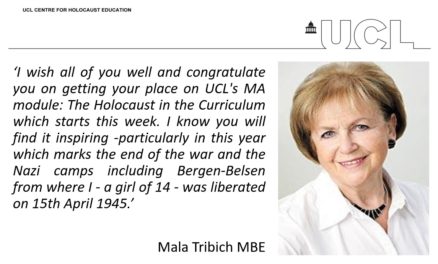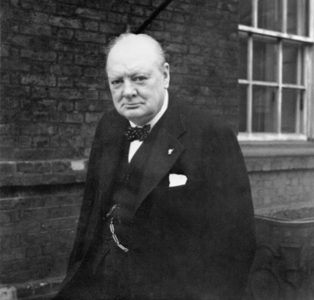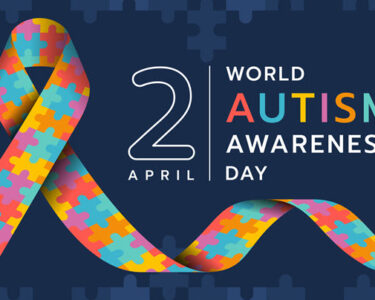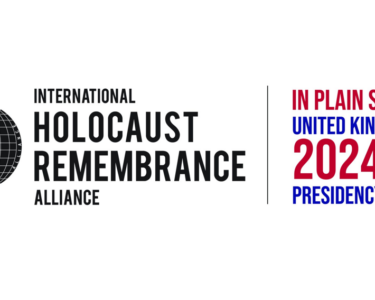Dear Colleagues,
Tomorrow (8th May), this country will be marking the 75th anniversary of Victory in Europe. WW2 veterans will be commemorating this important occasion during the current crisis, at a ‘safe distance’ from their families. Whilst celebrations and tributes will still abound via various media, it may very well be a particularly difficult time for those remarkable men and women to remember this day without their loved ones close by. Memories of the realities of war, the losses – both civilian and military – and the acute challenges of rebuilding life in the post war years will not, I anticipate, be too far removed from the memories of relief and jubilation as the war came to an end. This must be so much harder to bear when alone.
For survivors of the Holocaust, the pain did not end in 1945. Auschwitz survivor, Leon Greenman, would often share with students his inner most conviction that it was the end of the war when his real suffering began. He was referencing the painful years that followed the Holocaust, living with the memory of the cruelty he experienced at the hands of the Nazis and their collaborators and dealing with the mental damage of knowing that he came through alive while his wife and baby son did not. This resonates with the testimony of Leon’s fellow survivor, Issy Hahn, who spoke of the end of the war being the point at which his ‘life-sentence’ of memory began. Issy lived that life sentence until the age of 85 and Leon passed away when he was 97.
Survivors like Leon and Issy continued to live highly successful and fulfilling lives notwithstanding, as do survivors today. As a group, it is fair to say, that they have contributed enormously to Britain which became their home after the war. A significant number, in their later years, devoted themselves to education. In an effort to protect future generations from similar atrocity they would share their eye witness accounts open-heartedly with teachers and students in the hope that they become mindful of the warning signs of genocide and be vigilant.
As with others who battle with traumatic memories, lock-down may well bring particular issues for Holocaust survivors. While a number do have contact with family and friends via Zoom and Facebook, others do not and the need fpr social distancing has prevented them from marking the recent 75th liberation anniversaries with them and from continuing their important work with schools. This can, therefore, generate distinctive well-being issues which thankfully is being acknowledged by various organisations.
UCL has kept in regular contact with survivor Mala Tribich, who we are pleased to say is keeping well and positive. She recently issued a message of support to our teacher participants who are now coming to the end of Week 1 of our Master’s online module, The Holocaust in the Curriculum, below.
Today we are supporting you during this pandemic period by offering you free downloadable 20-minute self-study lessons on the Holocaust to try out with your students via any online platform.
They are three in a series of six lessons entitled ‘6 things you should know about the Holocaust’ and serve to address common misconceptions that our research has uncovered in its 2016 study. Do send us feedback via twitter or email and tell us what you think. We have been delighted with the comments you have sent to us following last week’s launch of our new online CPD offer and free downloadable self-directed study lessons and ‘ready to go’ lesson plan and guidance notes.





